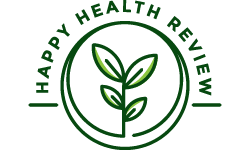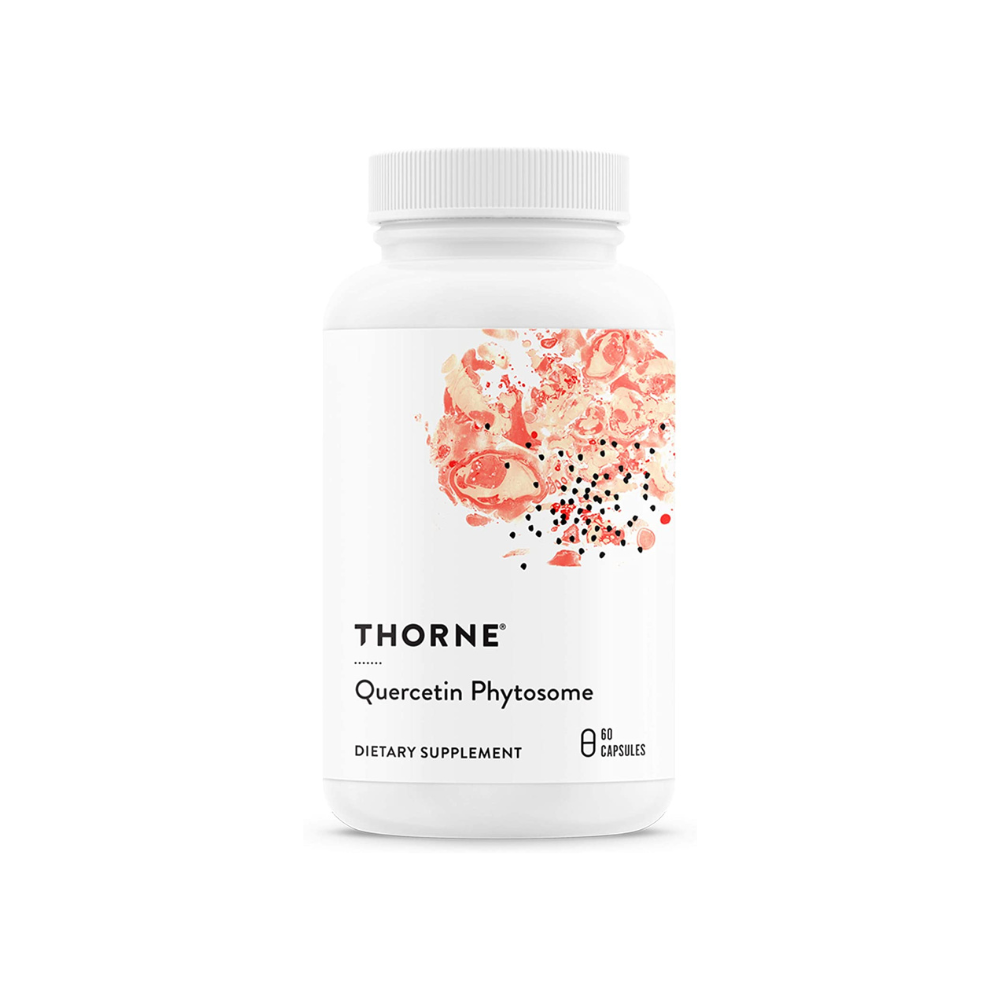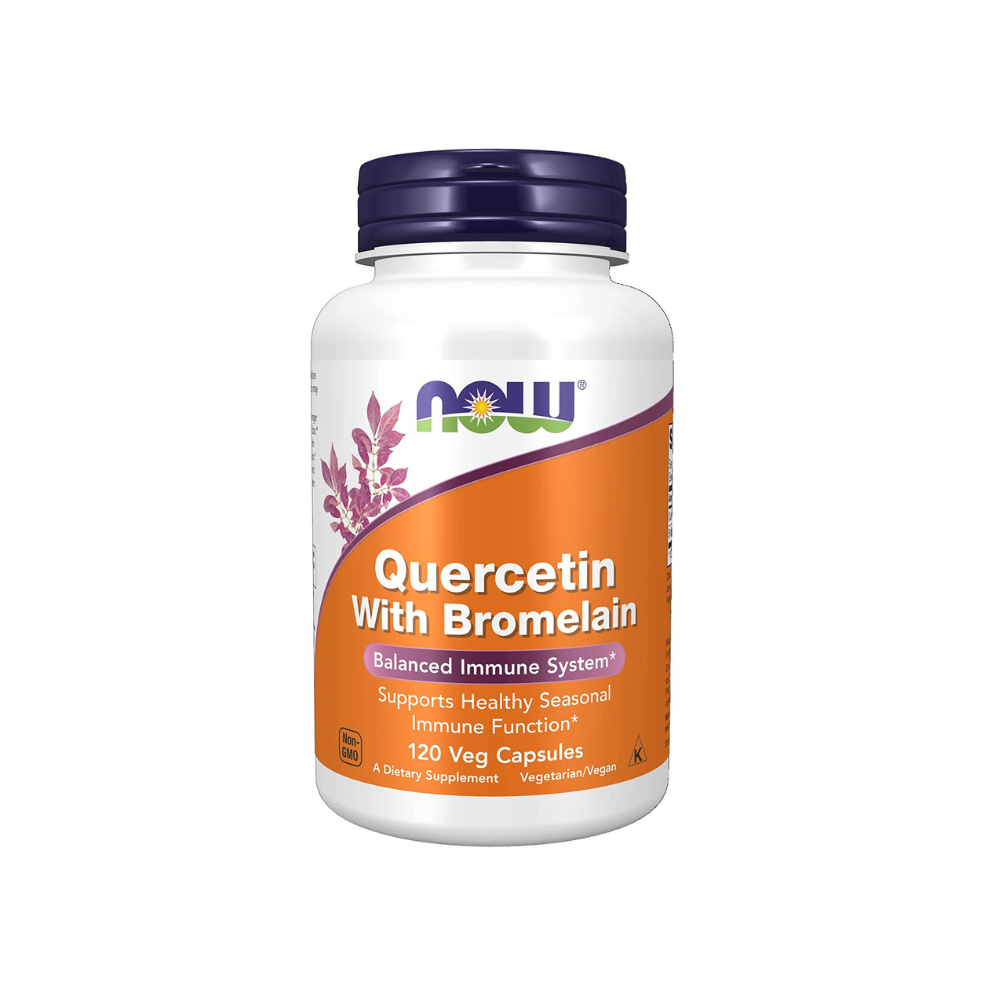Best Quercetin Supplement: A Powerful Antioxidant
Quercetin is a type of flavonoid, antioxidants that helps combat free radical damage. Read on for the top quercetin supplements reviews.

Quercetin is an amazing antioxidant that supports whole-body health. It's an antioxidant, anti-histamine (for allergies), anti-inflammatory, anti-aging, and antiviral. Quintupled its health-promoting effect on the body and works synergistically with other key vitamins and minerals to extend our healthspan.
Quercetin is one of the most popular super nutrients. If you're new to its free-radicals scavenging, inflammation-reducing, immune-boosting, and brain-protective actions, you'll soon realize it's hardly a gamble to add this supplement to your daily routine.
Antioxidants are potent natural compounds with many anti-aging and health-boosting properties. Quercetin has some incredible, proven health effects. It has been found that it can boost immunity, lower inflammation, and fight cancer.
Quercetin supplementations are an excellent way to help promote an anti-inflammatory response. Quercetin is used as an alternative to antihistamines for allergies. Here’s more about what exactly quercetin is, its important health benefits, and how to consume more of it.
How We Choose Quality Quercetin Supplement
Forms of quercetin are available in liquid, powder, and capsule. Quercetin liquid is usually available as drops or in a spray form that is easy to take with you. The powder form of quercetin is added to drinks, which can be messy, but cost-effective. Quercetin capsules are the least messy to take when you're on the go, but they can be difficult for people who might have trouble swallowing.
Vegan/Vegetarian
Some vegetarian capsules include gelatin, which is made from animal byproducts. Look for supplements specifically labeled vegan if you follow a vegan or vegetarian diet. If you're unsure about the capsules and liquid quercetin supplements, they are usually entirely plant-based options.
Additional Ingredients
Some quercetin supplements include extra ingredients that increase their nutritional and supplemental impact. A common addition is Bromelain, an enzyme found in pineapples that helps break down proteins. People who have an allergy to pineapples should be aware of it. Vitamin C is also included to enhance the antioxidant effect. If you want to get the most out of your quercetin supplement, you might consider taking it with additional nutrients.
Suggested Dosage
Most quercetin supplements provide between 500 and 1,200 milligrams daily. You will need to test different doses until you find the one that works best for you. If you plan to give quercetin to children, you should consult a healthcare professional.
Researchers reviewed the available evidence and found that taking more than 300 mg of quercetin supplement daily reduces systolic and diastolic blood pressure by 5.8 mm Hg and 2.7 mm Hg, respectively. Some studies show that high doses of quercetin (over 1,000 mg) may cause headaches, digestive issues, and tingles.
Here's what you need to know: Quercetin is a powerful antioxidant that supports cardiovascular health. It's available in a supplement form that's been shown to be effective in supporting healthy blood flow.
What you'll love: This quercetin supplement helps promote optimized immune response while minimizing stress on cellular health. It helps regulate histamines for people suffering from allergies and supports a healthy respiratory system.
What you should consider: An effective, science-backed formula from a trusted brand that uses the purest ingredients for maximal efficacy.
What you need to know: Boosted with bromelain, this quercetin supplements with bromelain comes in a two-pack from a long-established family-run manufacturer.
What you’re going to love: You get extra immunity support with both quercetin and bromelain. It promotes good respiratory function. It is non-GMO, vegan, and free of nuts, wheat, dairy, and eggs. Manufactured under strict quality assurance regulations.
What you should consider: You should consider whether or not you're allergic to pineapple before taking this supplement.
Here's what you need to know: Quercetin is an antioxidant that promotes immune health.
What you’re going to love: These capsules contain a potent blend of antioxidants and natural ingredients to ease allergies and boost immunity. In addition to Quercetin, this product contains Vitamin C, Bromelain, and Stinging Nettle Leaf Extract in a Vegetable Capsule.
What you should consider: You should consider taking the right dose of this supplement.
What Is Quercetin?
Quercetin is the most abundant dietary flavonoid. Quercetin, which belongs to a group of plant compounds called flavonoids, is one of the most common plant pigments found in foods.
Quercetin is effective against cardiovascular diseases, diabetes, liver disease, and certain types of cancers. Dietary sources rich in quercetin include apples, capers, green vegetables, such lettuce and kale, blueberries, onions, citrus fruits such as oranges and grapefruit, green tea, and wine.
Quercetin is not produced by our bodies, so we must obtain quercetin-rich foods or supplements. However, food sources alone cannot supply enough vitamin C for optimal health. To get an adequate daily dose of vitamin C, you’d need to eat five and a half cups of red onions or 28 cups of blueberries every day. With supplementation, you could get 500 mg from just one capsule. Typical doses in studies evaluating quercetin's effects range between 500 mg and 1000 mg per day.
A Respiratory Superstar
Quercetin has become a must-have for allergy sufferers during the fall and winter months. Quercetin is effective against allergy symptoms, runny nose, asthma, eczema, and hives. Furthermore, it helps prevent and treat bronchitis. It relaxes airways smooths muscles, modulates inflammatory responses, and supports healthy respiratory functions in the respiratory tract, and the sinuses.
Regarding respiratory function, quercetin has been shown to support healthy respiratory function during seasonal changes, offset the harmful effects of CO2 and wildfire smoke, and can even help mitigate the harmful effects of cigarette smoke. The results from one study led researchers to conclude, “Quercetin may be useful for treating chronic airway disease.”
An Anti-Aging Master
Quercetin has powerful anti-inflammatory and antioxidant properties, so adding it to your supplement routine is another good idea. It not only protects your body from free-radical stress but also quenches low-grade chronic inflammation, which is becoming more widely recognized as a significant contributor to accelerated aging.
Inflammation is associated with many chronic diseases and conditions. Ischemic heart disease, stroke, certain types of cancer, diabetes, chronic kidney disease, non-Alcoholic Fatty Liver Disease (NAFLD), and autoimmune and neurodegenerative conditions are all inflammation-related diseases.
Quercetin has been shown to naturally decrease CRP levels, which may explain why it is effective at reducing inflammation. A 2017 meta-analysis of 7 randomized controlled trials found that quercetin supplements at doses greater than 500mg per day, varying in length between six and ten weeks, resulted in a significant reduction in circulating CRP levels.
A Powerful Antiviral and Antihistamine
We know that vitamin C and D and zinc are important for immune system function. Quercetin is another important immune system booster that has a wide range of antiviral properties. It helps us fight upper respiratory illnesses and alleviate symptoms like the common cold and influenza. Quercetin has been shown to protect respiratory health through its ability to reduce inflammation.
Quercetin helps the immune system of athletes. Competitive athletes can be at greater risk for respiratory infections because they may over-exercise their immune systems. Quercetin has been shown to inhibit the spread of viruses like SARS-CoV, which may help treat COVID-19.
Studies show that quercetin can help alleviate both food and seasonal allergies. It has additional benefits for calming symptoms of an allergic response.
A study even showed that supplementing with Quercetin (a flavonoid) suppressed anaphylactic reactions to peanuts. Peanut allergies are among the most likely to be deadly, and this could be the breakthrough into a new treatment for them.
A Cardiovascular Winner
Quercetin has been shown to improve heart health and blood flow. It lowers your risk of heart disease by reducing your blood pressure levels and lowering your cholesterol levels. It has even been suggested that olive oil may be a key component in helping to protect against coronary heart disease.
Compared to the placebo group, in contrast to the placebo group; quercetin decreased blood pressure in all subcategories, including hypertensive subjects and the subcategory of younger adults aged 25 to 50 years. Quercetin has been shown to decrease plasma concentrations of low-density lipoprotein (LDL) cholesterol in people with high cardiovascular disease risk factors.
Quercetin fights cardiovascular disease in yet another keyway. Atherosclerosis is a disease of the arteries characterized in part by the accumulation of plaque on the inside wall of the artery. When quercetin is applied to the affected arteries, it accumulates specifically in the injured arteries.
These observations suggest that Quercetin may inhibit atherosclerosis by inhibiting foam cell formation in the blood vessels. There is not enough research into the cardiovascular effects of consuming foods rich in flavonoids.
Cancer-Fighting Properties
Quercetin has some of the best cancer-fighting potentials out of any natural compound, and antioxidants have some of the best.
Chronic inflammation and oxidative stress are linked to cancer formation. Antioxidants are essential for preventing serious diseases. Research shows that a diet rich in antioxidants can help prevent cancer. Quercetin is effective against existing cancerous cell growth.
So far, this particular antioxidant has been able to inhibit and induce cell death in several types of cancer cells. There is much more evidence needed to determine whether quercetin can be used to treat cancer, but you can already benefit from its antioxidant properties and reduce your cancer risk at present.
May Help Prevent Neurological Diseases
Protecting your brain from damage has never been more important than it is now. As we age, diseases like Alzheimer’s, dementia, and others become more common. Quercetin may help prevent certain types of chronic brain disorders.
It does so by countering oxidative stress, which once again plays a large role in the development of age-associated cognitive diseases. It's not clear exactly how it works, but studies have shown that it has strong neuroprotectant properties. Quercetin has been found to reverse several markers of Alzheimer's disease as well as improve brain functions during the early-middle stages of Alzheimer’s disease.
Surprisingly, the antioxidants showed no effect during the middle-late stages of Alzheimer’s disease. It suggests that it has more of a protective and preventive role for brain health than acting as a treatment. Newer studies have found that it’s quercetin, an antioxidant found in coffee beans, that may be responsible for this effect. It’s not caffeine.
Another reason to fill your diet up with more antioxidants for healthy brain function!
More About Quercetin Supplements
Quercetin is also available as a supplement. They come in capsule form, liquid form, or powder form. You can buy products that contain only quercitrin, but they don’t absorb well on their own. Because of this, Vitamin C or Bromelain is often added to supplements to improve bioavailability.
Quercetin found in citrus fruits, leafier vegetables, honey, and several other fruits and veggies, have been tied to lower inflammation, helps with blood pressure, and blood sugar levels, and has anti-allergy and anticancer properties. Studies are limited, but there may be some promise with quercetin's impact on the body.
Quercetin is a natural supplement that promotes an anti-inflammatories diet by reducing inflammation. For overall quality and effectiveness, the Thorne Research Q-Citrin Phytosome supplement was the best choice.
Quercetin supplements are usually taken as a natural alternative for allergy relief. They're often available in capsule form, but they may also be available in liquid, powder, or even gummy form. If you want a powerful dietary supplement that contains high-quality ingredients, Thorne Research Quercetinase is the recommended choice.
Additional Potential Benefits of Quercetin
Allergies: An allergy is an immune system reaction. Quercetin has been shown to help reduce inflammation and may help reduce the severity of these symptoms as well.
Arthritis: Quercetin has been shown to have anti-inflammatory properties which could help relieve the pain associated with arthritis. In a 2017 study where 50 women with rheumatoid arthritis were given either quercetin or a placebo for 8 weeks. Those who took quercetin experienced less pain than those who didn't.
Antioxidants: When the body has a healthy supply of antioxidants, the immune system also benefits from this, which helps the body fight off viral and respiratory illnesses.
Free radicals
Free radicals are damaging molecules that can cause illnesses like cancer and cardiovascular disease if they're not neutralized. Poor diet, cigarette smoking, and environmental pollution are just some of the ways free radicals enter the body. Foods rich in antioxidants like quercetin help fight oxidative damage and reduce their damaging effects. Adding a Quercetin supplement to an already balanced diet that includes a variety of plant foods can improve your antioxidant levels.
Food source for quercetin
Sources of Quercetin are found in many different foods. Apples, oranges, dark cherries, strawberries, and raspberries are some of the most common fruit sources. Green leafy vegetables (such as spinach), onions, parsley, and sage also contain quercetin. Red wine and tea contain high amounts of quercetin, which may help prevent cancer. Quercetin is an antioxidant found in foods like apples, berries, onions, broccoli, kale, and tea. Bioavailability of quercetin studies showed that quercetin glucuronide, which is found in onion, was the most bioavailable form.
Quercetin Supplement FAQ
What are the possible adverse effects of taking quercetin?
A. Quercetin supplements may cause headaches and numbness or tingly feelings. If you experience any unwanted side effects from taking supplements, stop taking them and consult your healthcare professional immediately.
Does quercetin have beneficial effects?
A. Quercetin may cause some minor side effects like an upset tummy or headache, particularly if taken on an empty stomach. If you're taking any prescription medications, check with your doctor first before adding quercetin to your regimen, as it may interact with your current meds.
What are the best foods for quercetin?
A: Capers, peppers (yellow, green, and red), onions (red and yellow), shallots, asparagus, cherries, tomatoes (red and yellow), red apples, red grapes (red and purple), broccoli, kale, red leaves, cranberries, blueberries, raspberries, and green tea, black tea (green), and compound in coffee.
Who shouldn’t take quercetin?
A. Quercetin is safe for most people, but women who are breastfeeding or pregnant or have kidney disease shouldn't take it. Quercetin may interact with some prescription drugs, so talk to your doctor or pharmacist before adding quercetin to your daily regimen.




